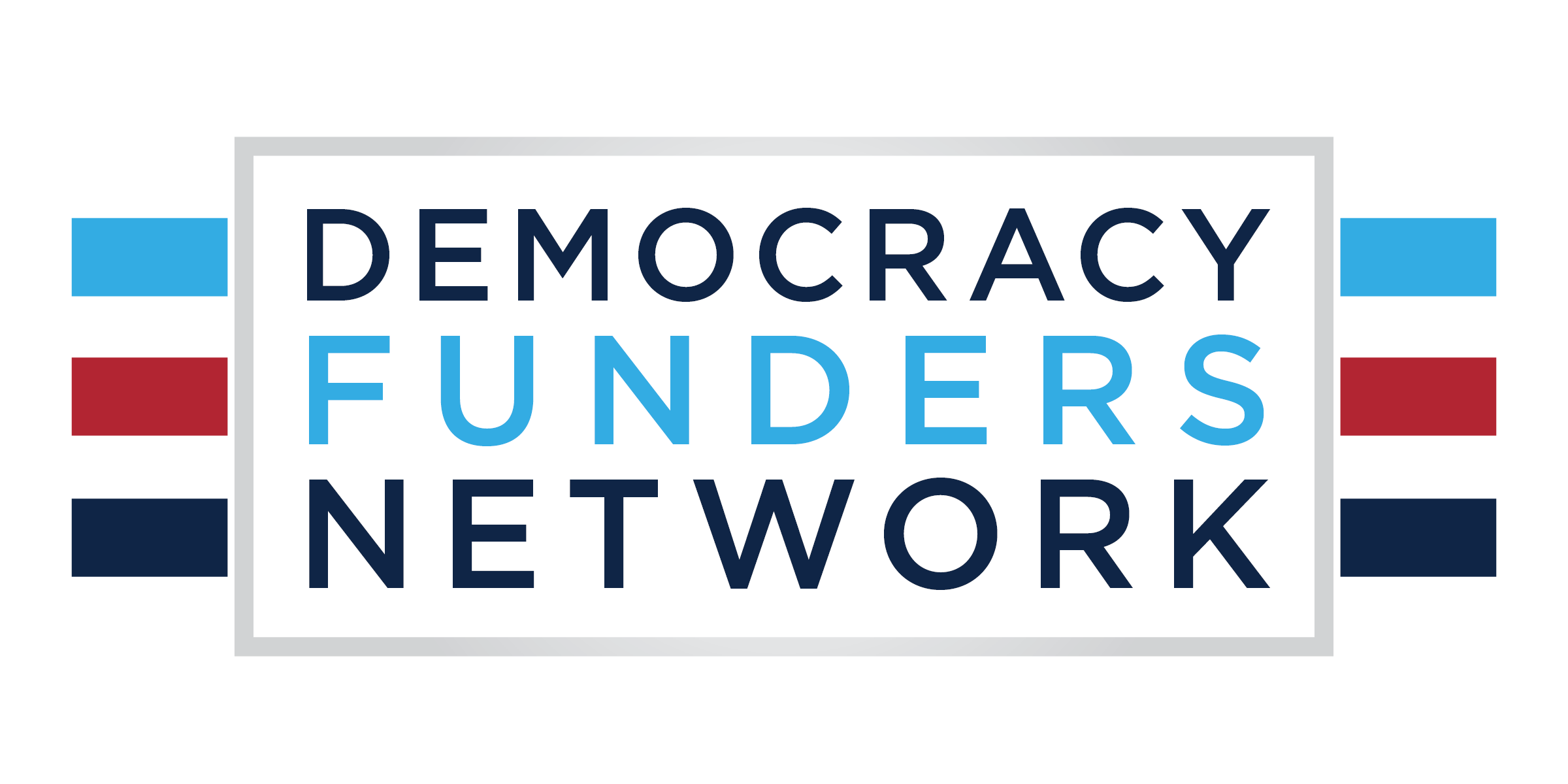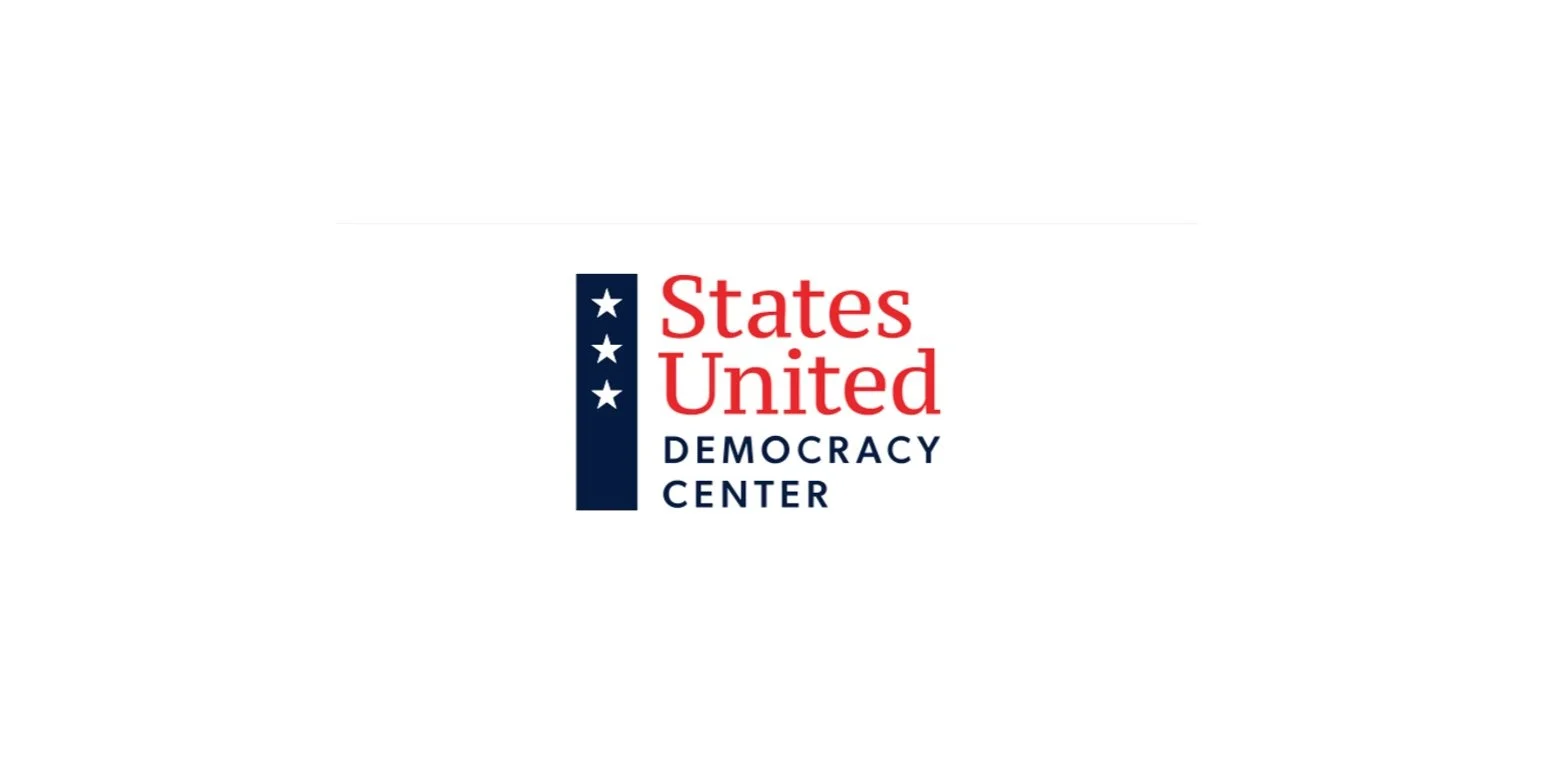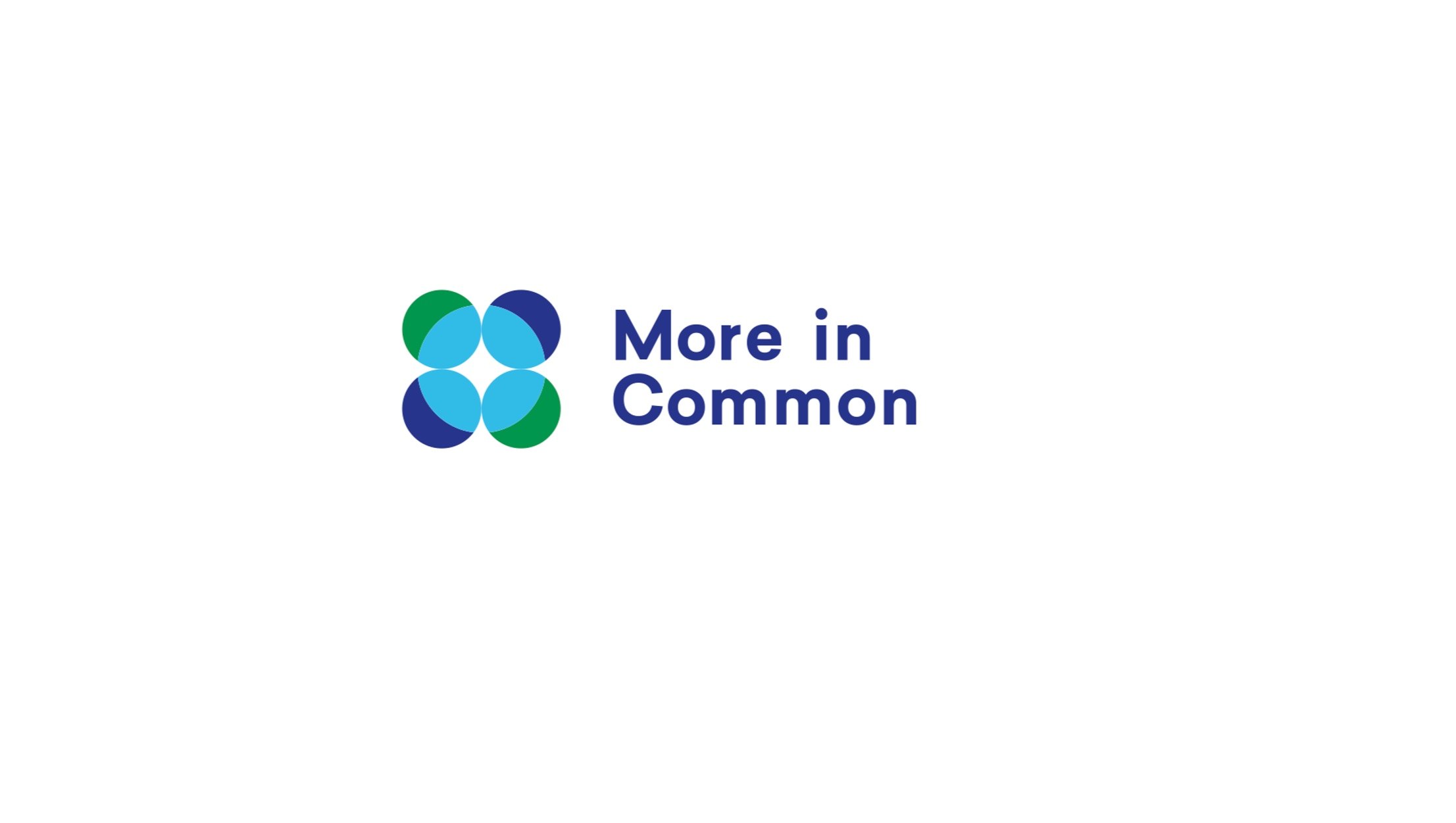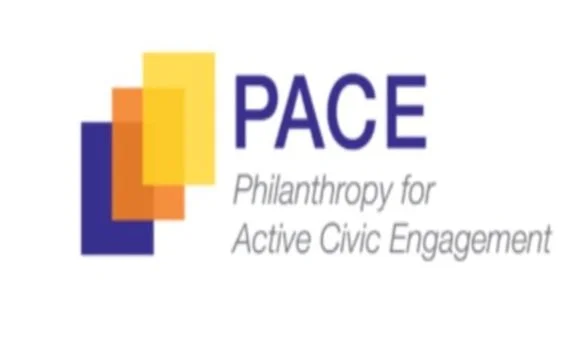While pro-democracy actors work to defend our democratic and electoral institutions in the near term, securing and strengthening our democracy also necessitates cultivating a longer term, affirmative orientation. DFN’s Better Futures Project is excited to announce the publication of a new toolkit, Becoming Futures Ready: How Philanthropy Can Leverage Strategic Foresight For Democracy, to build the strategic foresight skills of funders and to expand the field’s capacity to envision a bold, lasting vision for our democracy.
In this new report from the Carnegie Endowment for International Peace, Dr. Rachel Kleinfeld examines how over the past two decades, dozens of governments have used regulations, laws, and vilifying narratives to restrict the ability of civil society organizations to act and speak. Now, a similar set of tactics is being rolled out in the United States. What should philanthropists and organizations expect, and what can be done?
From the report:
CLOSING SPACE INTERNATIONALLY
“The absence of civic space was a hallmark of Cold War totalitarianism. There was the individual, and there was the government; any attempt to organize regular people to act or speak publicly in even innocuous ways—such as a birdwatching league, a home church, or a small arts magazine—had to be monitored and approved by the ruling party or crushed.
The blossoming of civil society across the former Soviet Union and many other once-closed societies was among the strongest signals that the 1990s wave of democracy was not only toppling authoritarian regimes but also growing roots. Organizations, interest groups, religious congregations, open media, and the free exchange of ideas helped people find their voices, locate their communities, and push their governments and societies to do things that they cared about.
Then, in the mid-2000s, democracy started to recede globally. And the walls started to close in on civil society.”
Over Zero and the Center for Inclusion and Belonging at the American Immigration Council are excited to announce the launch of “The Belonging Barometer: The State of Belonging in America.”
The Belonging Barometer report calls attention to belonging as a critical dimension of life that should matter to all stakeholders who seek to improve America’s physical, social, civic, and democratic well-being.
The Institute for Citizens & Scholars brings together diverse people, across traditional divides, to build a constitutional democracy that works for all. In 2019, Citizens & Scholars released the whitepaper From Civic Education to a Civic Learning Ecosystem: A Landscape Analysis and Case for Collaboration, which noted a surprising consensus among practitioners in the civic education space that thecurrent approach to developing effective citizens needed to be updated for the 21st century.
Building on that work, Citizens & Scholars has launched a multi-year initiative on Civic Measurement. The first major milestone is a new report, Mapping Civic Measurement: How are we assessing readiness and opportunities for an engaged citizenry?
Mapping Civic Measurement is a comprehensive civic measurement landscape review and a first-of-its-kind framework for mapping civic readiness and opportunities.
The report features a collection of measurement tools, rubrics, and more than 200 resources in use by practitioners across education, business, philanthropy, community institutions, media, government, and civil society. You’ll come away from the report with new ways to think about measuring civic learning impact, new research to inform your work, and new opportunities to connect with other practitioners.
Now is the time to come together to cultivate people as informed, engaged, and hopeful citizens. Creating a common knowledge base and practices to measure civic readiness and opportunities will enable us to chart the course to a healthy and robust democracy that works for all.
Political violence is on the rise in the United States, and as we approach the 2024 election season, there are urgent interventions that can mitigate risks and prevent violence from further increasing. As we saw throughout 2020, elections and the post-election period can be flashpoints with particularly elevated tensions and increased risk of political violence. The violent attack on the US Capitol is forever etched in our minds, and it serves as a constant reminder of where our work begins as we look toward the 2024 elections. The increasing threats can be overwhelming, but with early and sustained investment in key antiviolence work, we can mitigate the risks of further violence over the next year and beyond.
Political violence and democratic backsliding—including declining institutional health and public distrust of institutions—are mutually reinforcing phenomena. The threat of political violence can chill civic engagement and voter participation, particularly among communities targeted by such threats. A heightened risk of political violence also endangers election administrators and election administration. In this guide we aim to present effective strategies and leading organizations involved in preventing and addressing political violence in hopes of increasing donor understanding of these issues and to catalyze action.
Email Carly Straus at carly@thirdplateau.com for access.
While questions about the size and role of government are highly politicized, most Americans are united in a desire for our government to be effective and efficient. Despite this, our national governing institutions are weakened by years of neglect and underinvestment. The federal government is beset with outdated systems ill-equipped for the twenty-first century and a demoralized and shrinking expert workforce. Partisan gridlock and insufficient resources perpetuate a vicious cycle in which national governing institutions struggle to deliver the results they aspire to, eroding public trust and therefore making it harder to secure the political support and resources they require to succeed. The historical lack of diversity in the senior federal workforce has led to programs failing to meet the needs of populations who are not represented in decision making processes. This lack of perspective in the design and implementation of programs not only limits their effectiveness, but also leads large swaths of the public to believe the federal government is not serving them or their families.
Highly functioning national governing institutions are more likely to restore the public’s trust and faith in democracy’s ability to deliver for all Americans. The effectiveness of our governing institutions matters on a basic level for making good use of public resources, delivering essential services, and ensuring that citizens experience the value of civic institutions. On a more existential level, our governing institutions need to be equipped to respond to the increasingly complex challenges of our time, including battling a global pandemic, managing a rapidly changing climate, modernizing our nation’s infrastructure, and mitigating the impacts of phenomena like inflation. Michael Lewis, author of The Fifth Risk, has noted that the “United States government manages the biggest portfolio of [catastrophic] risks ever managed by a single institution in the history of the world.”
To access this report, please email info@democracyfundersnetwork.org.
The midterm election period proved mercifully free from violence and drama, following months of concern from democracy organizations and even the Department of Homeland Security.
While most experts did not expect Election Day violence (which is rare globally), why did more problems not arise from the army of volunteer poll watchers recruited by Steve Bannon? Why was there not more pre-election intimidation? And why did most election deniers accept their losses peacefully, particularly after an expected red wave failed to materialize?
In other words, how should organizations and philanthropists who have been working to support democracy and deter political violence understand what occurred during the 2022 elections, and what it means for future work supporting democracy and reducing violence?
The Constitution Drafting Project brings together three teams of leading constitutional scholars—team libertarian, team progressive, and team conservative—to draft and present their ideal constitutions. Team libertarian was led by Ilya Shapiro, then of the Cato Institute, and included Timothy Sandefur of the Goldwater Institute and Christina Mulligan of Brooklyn Law School. Team progressive was led by Caroline Fredrickson of Georgetown Law School and included Jamal Greene of Columbia Law School and Melissa Murray of New York University School of Law. Team conservative was led by Ilan Wurman of Arizona State University College of Law and included Robert P. George of Princeton University, Michael McConnell of Stanford Law School, and Colleen A. Sheehan of Arizona State University.
More in Common’s newest survey, Parties and Politics, focused on Americans’ attitudes towards the 2022 midterm elections and their feelings about how to best influence politics. It was developed in collaboration with the national NBC broadcast & streaming network, LX News, as well as our polling partner YouGov.
The top findings are :
Americans across party, race, and generations overwhelming see voting as the most effective way to influence politics. However, Gen Z Americans are much more likely than other generations to also see protesting as an effective way to influence politics.
Democrats and Republicans are much more likely to want more moderate candidates in the other party than in their own party. In contrast, Independents want more moderate candidates in both parties. Republicans and Democrats who want more moderate candidates in their own party were less ideologically extreme and more likely to say they belonged to their party because of their family or friends, as opposed to how their party aligned with their values.
Registered voters are ten times more likely to say they will vote in the 2022 general election compared to Americans who are not registered to vote.
Dr. Rachel Kleinfeld, Senior Advisor to DFN and Senior Fellow at the Carnegie Endowment for International Peace, authored a U.S. Democracy Funding Strategy report laying out a comprehensive strategic approach to the set of challenges facing our democracy and what we might do at scale to solve them. She lays both long-term and short-term critical strategies and offers pictures of 3 possible futures we might achieve through them.
This guide was produced hoping to orient funders to the different ways civil society actors are thinking about and addressing the problems of affective polarization and eroding social trust. We broadly outline some of the major theories of change for advancing social cohesion, explore ways funders can support these strategies, and conclude with a set of open questions with which the field still needs to grapple.
Our hope is that funders — whether brand new to this set of strategies or already investing in them — will come away with clearer understanding of this rapidly proliferating space. We also hope funders will see the research and theory undergirding many of these initiatives and recognize this work for what it is: a serious and vital project for sustaining and restoring the health of American democracy.
States United Action released updated data for its Replacing the Refs tool, which tracks the trend of candidates who deny the results of the 2020 election (Election Deniers) running for the key statewide offices that run, oversee, and protect our elections—governor, secretary of state, and attorney general—in 2022. The April update indicates that there are now nine states with Election Deniers running for all three top statewide positions.
Under our Bridging Differences initiative, we have reviewed decades of scientific studies, interviewed dozens of leaders, and surveyed the landscape of relevant programs. From this work we have collected enduring wisdom and best practices for bridging political, racial, religious, or other divides. It has led us to identify a set of skills and strategies that support positive dialogue, relationships, and understanding between groups or individuals.
The Playbook synthesizes these core skills and strategies. For each of the 14 skills that we identify, we first briefly explain the main steps involved in how to practice it. Then we explain why and when this skill is useful and offer caveats to keep in mind when you try it out. Finally, we cite research that supports this skill and organizations that use it in their work, along with other resources where you can learn more about it.
Among national institutions —government, media, and business— More in Common tested in December 2020, none earned the trust of a majority of Americans. Levels of interpersonal trust were similarly concerning, with a majority of Americans saying you “can’t be too careful in dealing with other people” and one in three Americans saying there is no community outside of friends and family where they feel a strong sense of belonging.
These topline findings paint a stark picture. If we probe deeper, however, we discern important distinctions in the probable drivers of distrust. Under- standing these nuances does not make the overall picture brighter, but itcan illuminate potential solutions and pathways to renew trust. Two distinctive “stories” of distrust are evident in the data—an ideological ‘us versus them’ distrust and a ‘social distrust’ that tracks interactions and feelings of belonging, dignity, and equality. These two stories are not fully comprehensive of the myriad drivers of distrust in America, but they capture distinctive ways distrust relates to ideology and experience.
READ MORE>
PACE’s Civic Language Perceptions Project seeks to understand peoples’ perceptions of the language associated with civic engagement and democracy work.
PACE seeks to advance liberal democracy’s ideals and our vision is one in which all Americans are informed and empowered to contribute to civic life. To do so, we need to understand what perceptions and associations exist related to “civic and democracy work,” and how these terms and concepts resonate (or don’t), so that we can work more inclusively, effectively, and constructively.
That’s why PACE conducted an updated, nationally representative survey of 5,000 Americans as step 1 into a larger process of inquiry and discovery. The exploration of this data– and what it means for our collective work– is only just beginning. And we can’t (and shouldn’t) do it alone. PACE invite others who are working to advance the principles, values, and norms of liberal democracy to see the data as theirs to explore, to probe, to ask questions, to make meaning, and ultimately, to improve our shared efforts of increasing civic engagement and strengthening democracy.
Vibrant human connection is central to our health as individuals, our efficacy as organizations, and our collective wellbeing as a society. Across disciplines, studies show that we are wired with an instinctive drive to mirror and coordinate, build relationships, and help and support one another. These findings are echoed and enriched by wisdom teachings and cultural practices going back thousands of years. Relationships are at the heart of what makes life worth living.
Though we long for connection, too often our relationships take a backseat to other demands and priorities. Elsewhere, our differences are exploited and connections severed, fueling toxic polarization. In the midst of a mental health crisis, social conflict, and a global pandemic, how do we cultivate a culture of connection?
Relationships are not just a means to an end. They are ends in themselves, and they are vital to enhancing most every aspect of our lives and society. This is the relational truth at the heart of everything we do.
The Freedom in the World report is composed of numerical ratings and supporting descriptive texts for 195 countries and 15 territories. External analysts assess 210 countries and territories, using a combination of on-the-ground research, consultations with local contacts, and information from news articles, nongovernmental organizations, governments, and a variety of other sources. Expert advisers and regional specialists then vet the analysts’ conclusions. The final product represents the consensus of the analysts, advisers, and Freedom House staff.
For each country and territory, Freedom in the World analyzes the electoral process, political pluralism and participation, the functioning of the government, freedom of expression and of belief, associational and organizational rights, the rule of law, and personal autonomy and individual rights.
Are internet technologies doing more harm than good to our democracy? And what – if anything – should lawmakers do about it?
Because these questions are critical to U.S. elections, democracy and public health, Gallup and Knight Foundation sought American views on the way forward.
Surprisingly, Americans’ opinions did not always follow party lines when it comes to Internet regulation. In fact, half of Americans occupy a diverse middle ground, a new Gallup/Knight survey of 10,000 adults found, offering a new lens on the national conversation on free expression online.
America’s authoritarian faction is both more extreme and more successful than similar movements in other advanced democracies. Yet despite its ascendency, this faction does not enjoy broad-based support. So what explains its outsized success?
In Advantaging Authoritarianism: The U.S. Electoral System & Antidemocratic Extremism, Protect Democracy examines the links between escalating antidemocratic extremism and the U.S. electoral system: “one uniquely translating limited factional support into outsized political influence.” In particular, it interrogates how specific features of the U.S. electoral system may be structurally favoring political extremism, such as by exaggerating one party’s electoral wins over the other, diluting minority voting power, weakening competition between the major parties, preventing an electorally viable new center-right party, and rewarding extreme factions at the ballot box, among other effects.
As political scientist Robert Dahl once observed, the U.S. system, “natural as it may seem to us, is of a species rare to the vanishing point among the advanced democracies.” Advantaging Authoritarianism examines its anomalous features; the ways in which those features are aggravating extremism; and how various reforms could help to turn the tide. While the authoritarian threat confronting the U.S. is a near-term crisis, successfully confronting it will also require long-term, structural solutions.
This working paper for philanthropy, written by New America, Over Zero, and Thought Partnerships, briefly summarizes current trends that, in light of global experience, suggest heightened risks of violence. Against this worrisome backdrop, they propose six funding strategies and specific recommendations to integrate violence prevention and mitigation into existing strands of work on polarization, institutions, or justice issues READ MORE>











